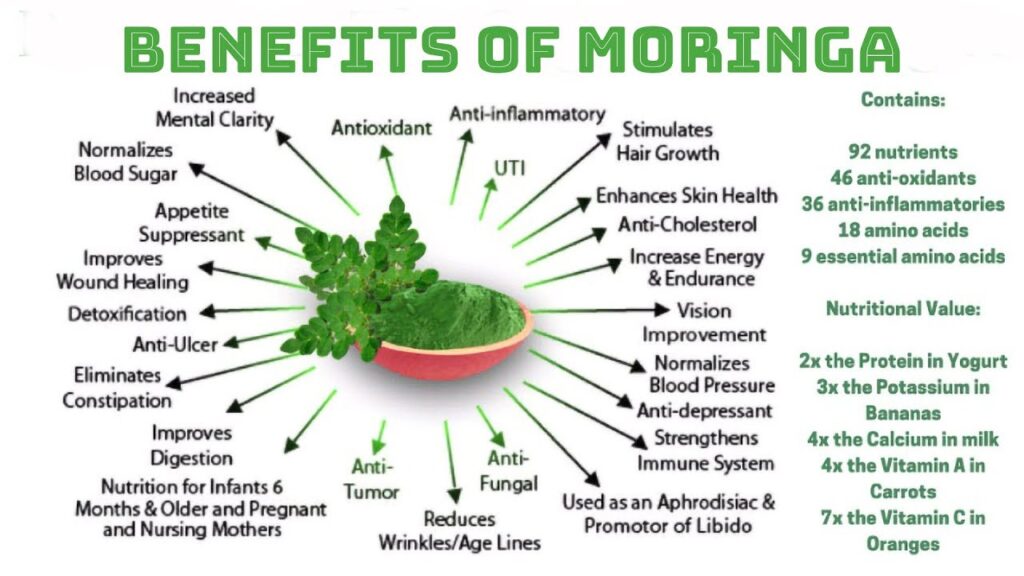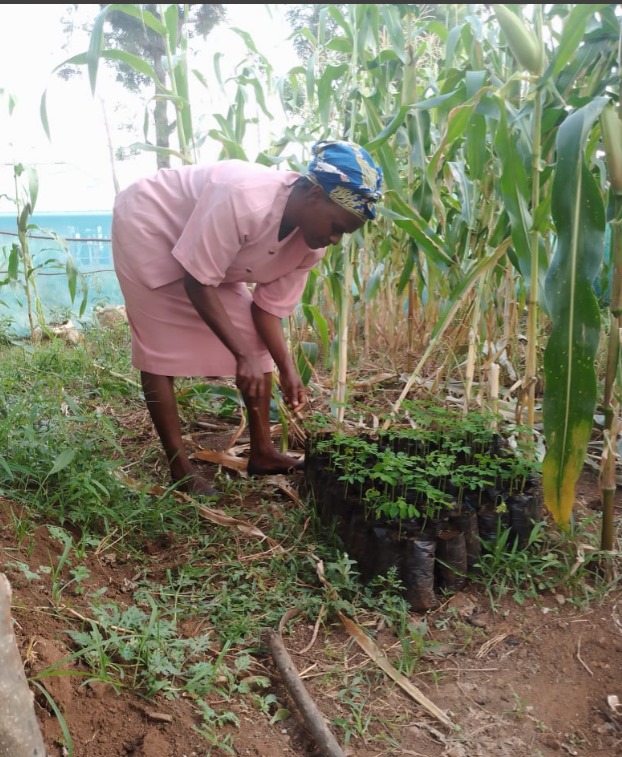Yes, Moringa has the potential to significantly reduce poverty, especially in rural and marginalized communities.
How Moringa contributes to poverty alleviation:
1. Income Generation:
- Farming Moringa provides farmers with a sustainable source of income. It is fast-growing, drought-resistant, and can be harvested multiple times a year. This regular yield gives farmers a consistent income stream.
- Value-added Products: Beyond selling Moringa leaves or seeds, farmers can engage in value addition by processing Moringa into products like powder, oil, or teas. These high-demand products fetch premium prices in local and global markets, increasing their earnings.
2. Job Creation:
- Cultivating, processing, and marketing Moringa products create job opportunities across the value chain, from farming to packaging and distribution.
- Small-Scale Entrepreneurs: Moringa’s versatility allows local entrepreneurs to create small businesses, producing products like soaps, oils, and supplements, creating more economic opportunities.
3. Improved Nutrition for Communities:
- Combat Malnutrition: Moringa is highly nutritious, rich in vitamins, minerals, and protein. In regions facing malnutrition, incorporating Moringa into daily diets can improve health and well-being, boosting productivity and reducing healthcare costs.
- Improved Health Means Better Productivity: Healthy individuals are more productive. By improving nutrition, Moringa enables individuals to work more effectively, contributing to economic growth and reduced poverty.
4. Resilience to Climate Change:
- Moringa’s resilience to drought and poor soil conditions means it can thrive in regions vulnerable to climate change. By providing a reliable crop, even in difficult growing conditions, Moringa offers a sustainable livelihood to communities that would otherwise face economic hardships.
5. Empowerment of Women:
- In many parts of Africa and Asia, women are the primary cultivators of Moringa. Providing women with training and resources to grow and market Moringa empowers them economically, leading to greater financial independence and improved livelihoods for their families.
6. Support for Sustainable Development:
- Moringa cultivation aligns with environmental sustainability goals, ensuring that communities can maintain productive farming practices over time without degrading their land. This long-term approach helps communities build sustainable economies.
By fostering better health, creating economic opportunities, and supporting environmental sustainability, Moringa offers a holistic approach to reducing poverty. It not only provides immediate income but also builds long-term community resilience and development



